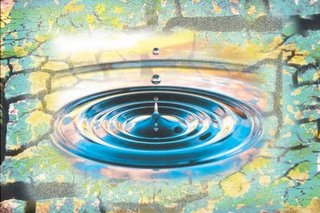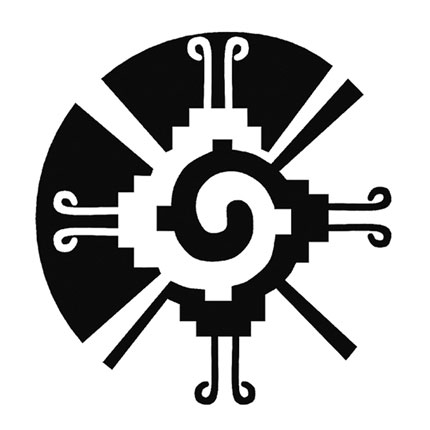
Why are we here? What makes a man evil; nature or nurture? Does evil even exist? Do we all have a divine path or does everything which happens simply happen by chance? Is there a God? Does he/she control our fate, or is God simply an onlooker? These are just a few questions which plague the mind and heart of the modern thinking man. We do not have the answers we seek. Should we have hope for the future, or live as though there is no such thing as tomorrow? I have come to realize, through my readings of testimonies and diaries of Holocaust survivors, that a place rich in answers to our most burning questions about human nature and the spiritual purpose of mankind, can be found within the experiences of these people.
If anyone would know if God exists and if we have a purpose which is written in the stars, it would be a survivor of tragedy. I encounter believers everyday in my own life. I meet people who claim that they feel God, they know for certain that we are all involved in an ultimate plan and that God loves us no matter what. I am stuck in the middle between those people, and people with a lot of doubt, for how can we know the full experience of God- We who live sheltered, overindulgent lives- but still complain? I have always felt that people with pristine faith in God are a little naive, for they know nothing of the experiences on the other side of life, those experiences such as surviving the Holocaust.
I have always felt that spiritual knowledge must come from experience. Otherwise, we can merely intellectualize an experience. Yet when it comes to a tragedy such as six million Jews tortured and murdered, along with several million others, how can we intellectualize, think we understand, and then still believe in God and fate? We have no right to speak of God indefinitely. When we speak of our values and beliefs we must make it clear in our minds and hearts, that what we feel and see is only a result of what we have experienced. Holocaust survivors, in my opinion, have much more authority on the matter, for they have looked God and the devil in the eyes simultaneously, and came out with their own truth. This truth, for me, has become so much more significant than how people in my everyday world approach the issue of God.
When looking for spiritual truths in Holocaust testimonies, there is one major problem that inevitably arises, which is of course, the difference in beliefs. There seem to be two basic ideas, that of God and fate ruling our lives, and the belief that there is no God and everything happens simply by chance. I have come to realize that there is a basic consensus among survivors, that of needing to believe in God, and thanking God for their survival. Not to say that atheistic survivors are not worth listening to. The point is that there is a general shared belief among most survivors I have encountered. Take the oral testimony of Edith Horowitz for example. Horowitz describes the tragic loss of her father, the pain of enduring hunger and a baby stolen from its mother at birth. She tells us of an SS woman who tortured and beat a young girl for eating a peach, but then caring for a cat. She speaks of a man broiling a piece of flesh taken from a corpse and eating it. It is no surprise that she states, "Whoever pushed harder survived." This suggests that she did not believe in a fated survival for anyone, but a more survival of the fittest belief. Who can blame her after the atrocities which she witnessed? Yet then, interestingly enough, in her later years she became quite religious. "Continuation of Judaism is the most important thing in our lives." It cannot even be argued that she believes in God because of the separation in years of the experience, for she says, "I still have nightmares. Every night I dream that I am back in camp." Thirty-eight years later, she still relives her experience of the Holocaust every night. "Not a day passes when I don’t think about it." Although Horowitz practices Judaism, which means a belief in God, she does not believe in fate. "I survived by sheer luck." It seems that Edith Horowitz wove a complicated web of beliefs in her lifetime. Yet there is a solid philosophy behind her words.
Unlike Horowitz, Brandla Small seems to grapple with different beliefs in a higher power, although she may not realize it. She prayed, "God be with me," as she hid with her baby underneath a bed. She believed God had the power to save her baby. Yet then the baby stayed quiet, which leads us to believe that the baby’s random actions led to its survival. Yet then Small says, "That time I saved my child." If she believes she saved her child on her own, then why did she pray to God for help?
Small describes her camp experience where mothers smothered their own children; her four year old daughter was taken from her arms; and also being forced to eat mud out of unbearable thirst. After all of this, Small shows her ideas of luck. "Do I have such bad luck? Not to find anybody of such a big family?" She equates her lone survival to bad luck, providing us with the understanding that she does not believe in fate. Yet then she opens up immensely by saying, "Sometimes God doesn’t forget about us. I believe in God. I’m a believer, a big believer. Thank God." Not only does Small believe in a higher power, she thanks that God for making her a believer! After what this woman witnessed, that is a huge piece of truth!
Elie Wiesel has been portrayed as a tortured spirit and a definite atheist. In his book Night he actually declares his atheism. Yet in his article, "Why I Write: Making No Become Yes," he leads us to believe otherwise. He says, "Our Jewish children had no effect upon the killers, nor upon the world, nor upon God." Now, although this could be taken as a statement proving God’s failure to exist, it can be viewed otherwise when compared to other quotes from the article. For example, he writes, "God? He remains the God of darkness." This suggests, in conjunction with the earlier sited quote, that Wiesel does believe in a God, although that God has been dark and unfeeling." His belief in God is shown completely within the one quote which he sites, "When man, in his grief, falls silent, then God gives him the strength to sing his sorrows." Wiesel ends his article with this quote. If Wiesel agrees that God gives man strength to release his pain, then how can he be called an atheist? As far as fate, his beliefs are quite clear. "I have survived by chance."
There are many other survivors whose beliefs are less enigmatic, such as Rozalia Berke. She states, "God was with us, for after twenty-four hours the Russians were in and the Germans escaped."
Whatever one’s own spiritual and philosophical beliefs are, it is undeniable that many answers lie in the hearts of survivors of the Holocaust. For who are we to decide on a God? For as Wiesel said, "You will not understand, you will never understand, you who never lived under a sky of blood, will never know what it was like." Indeed, we wish not to know, truly, what it was like. Yet we will always have a spiritual obligation to listen.
-Lauren C. Williams


No comments:
Post a Comment